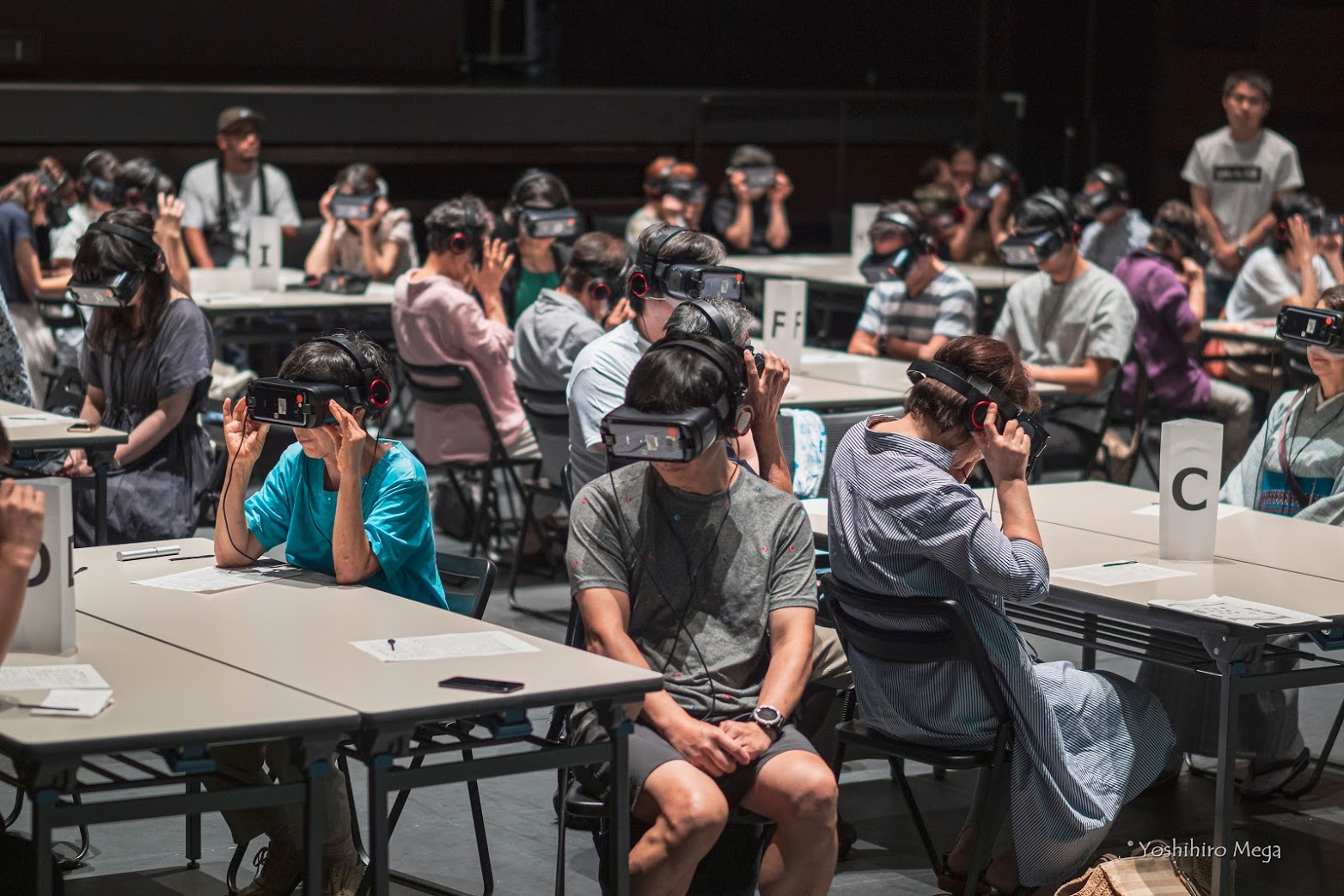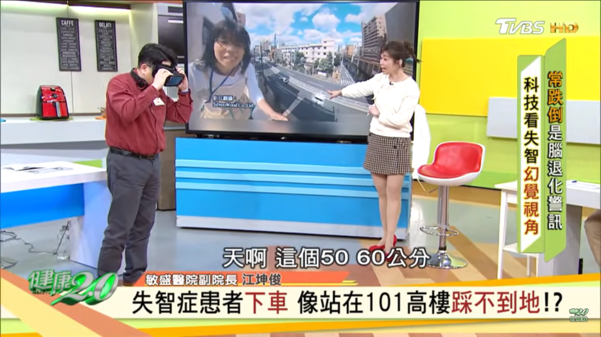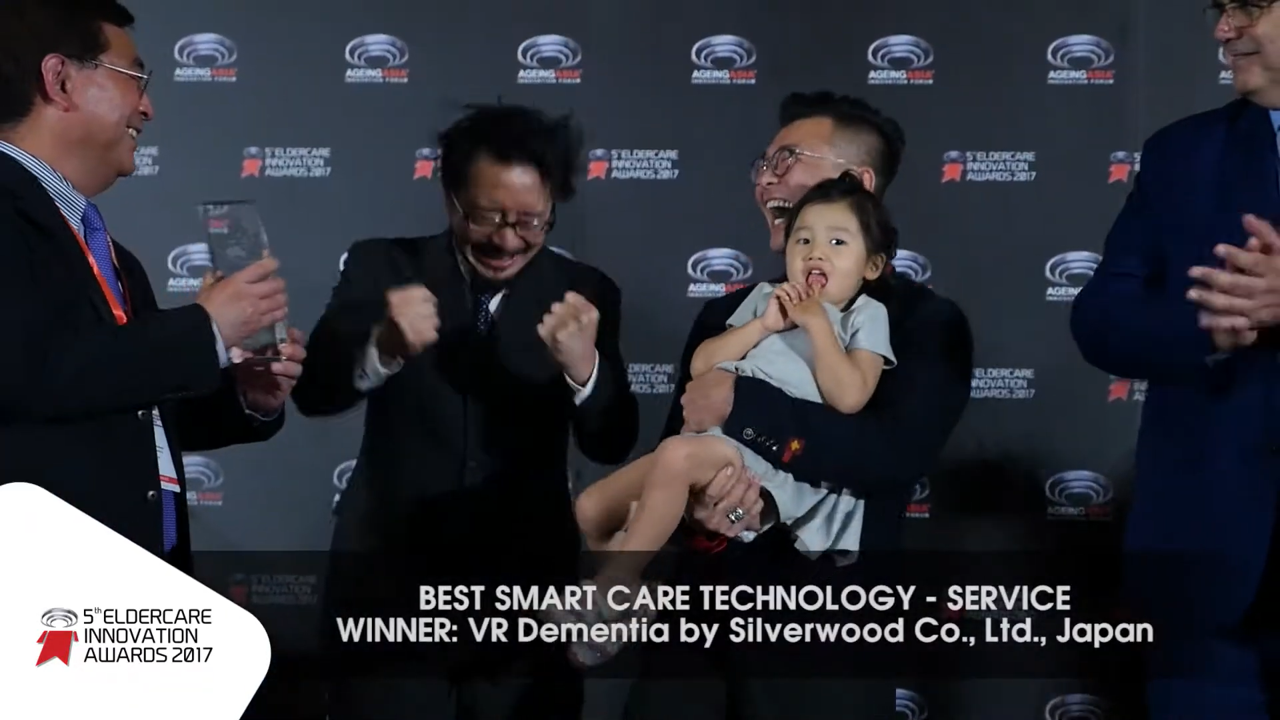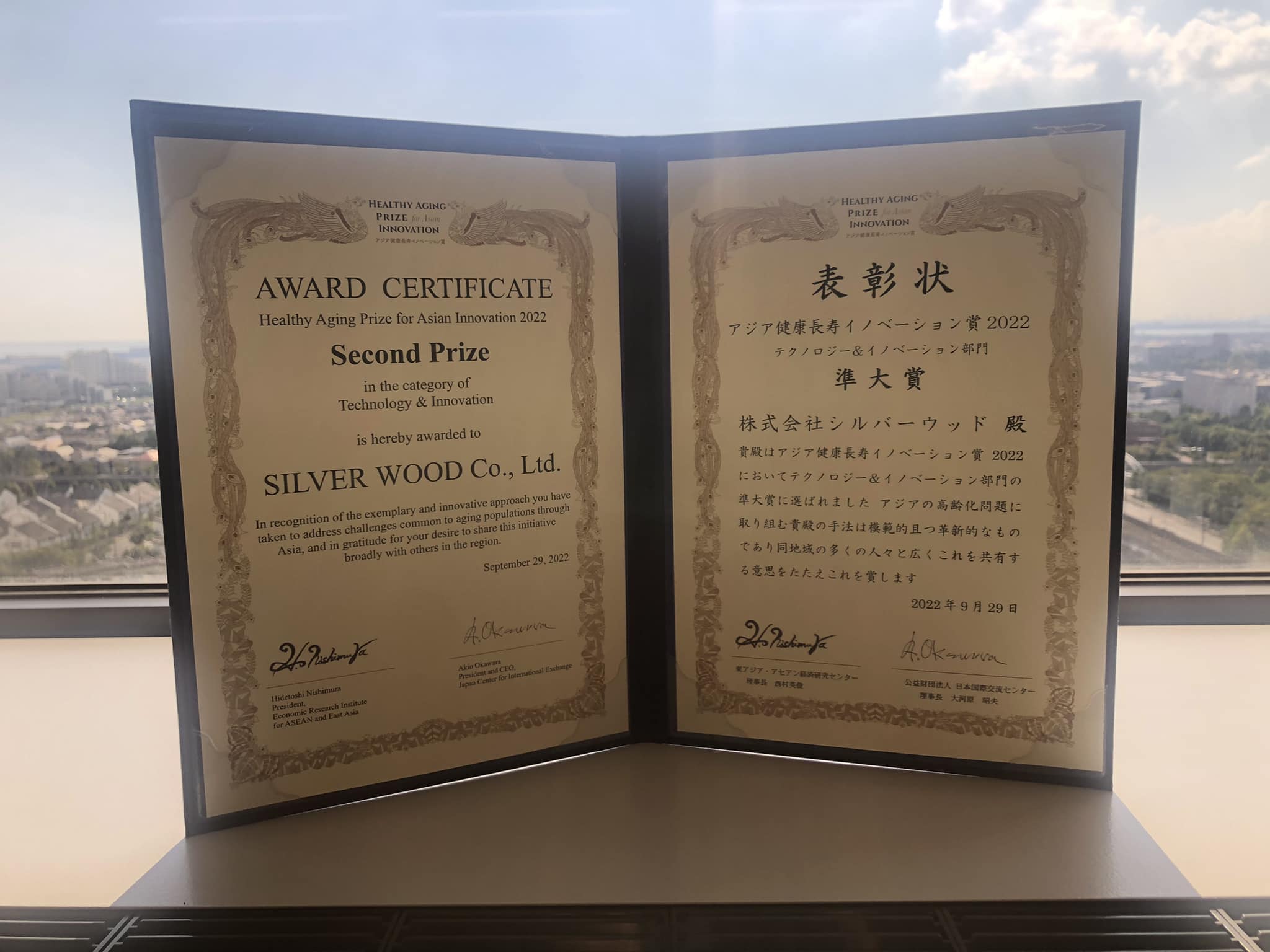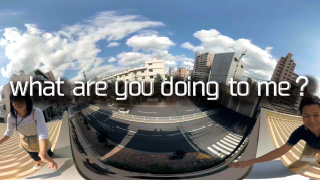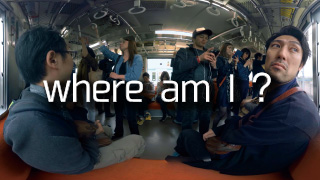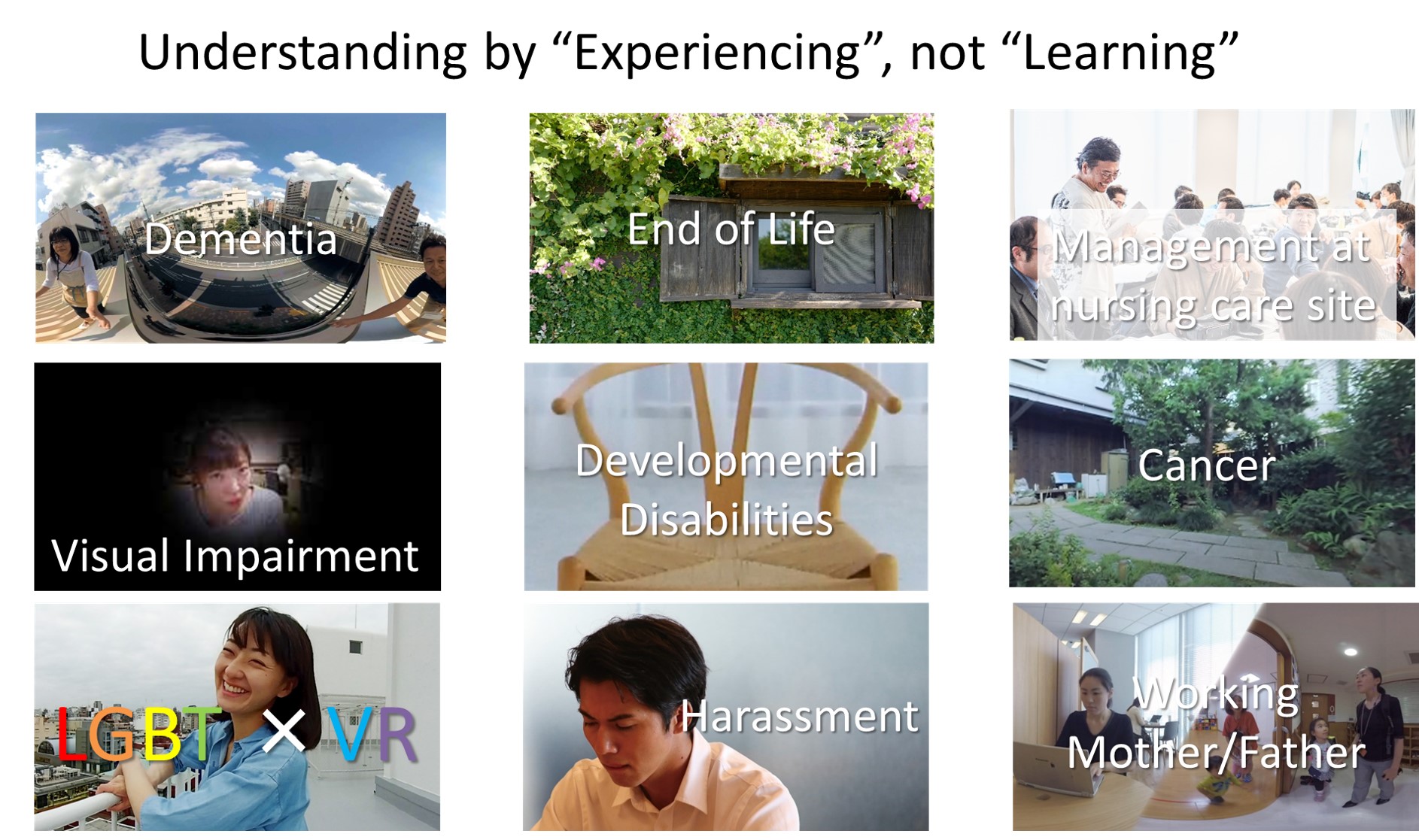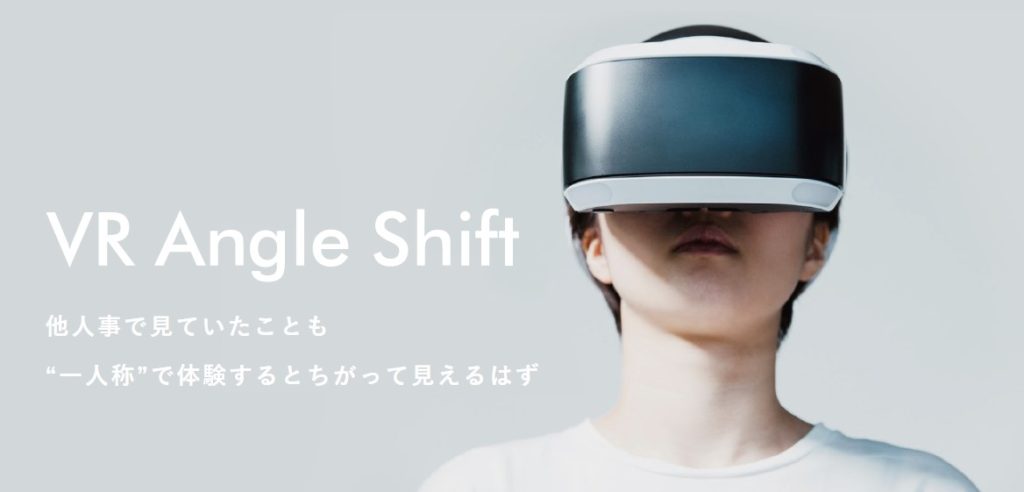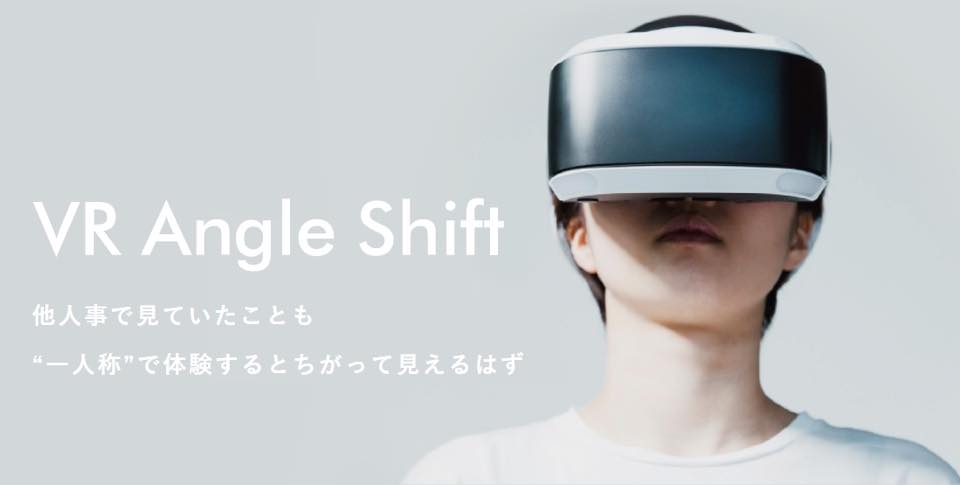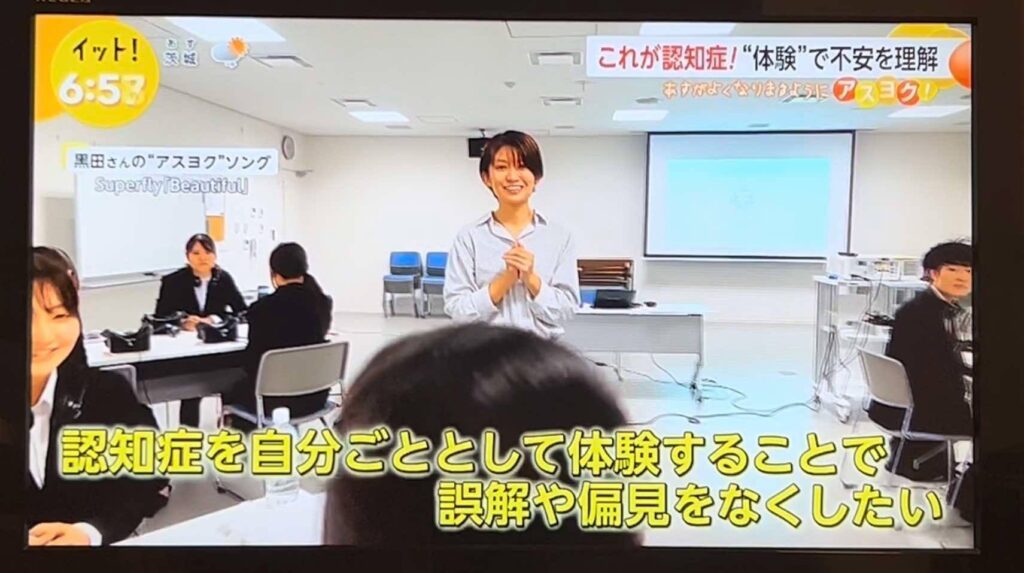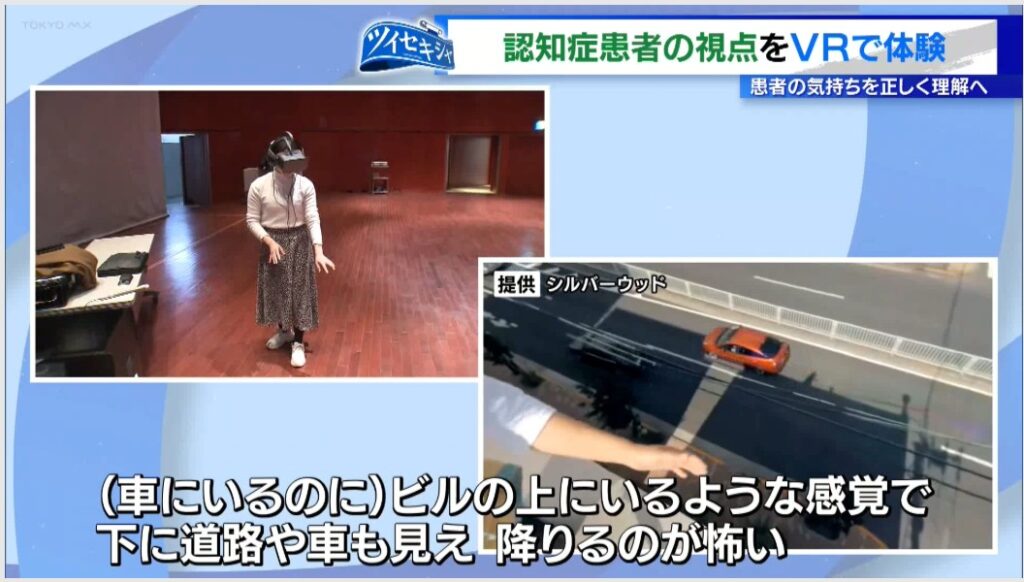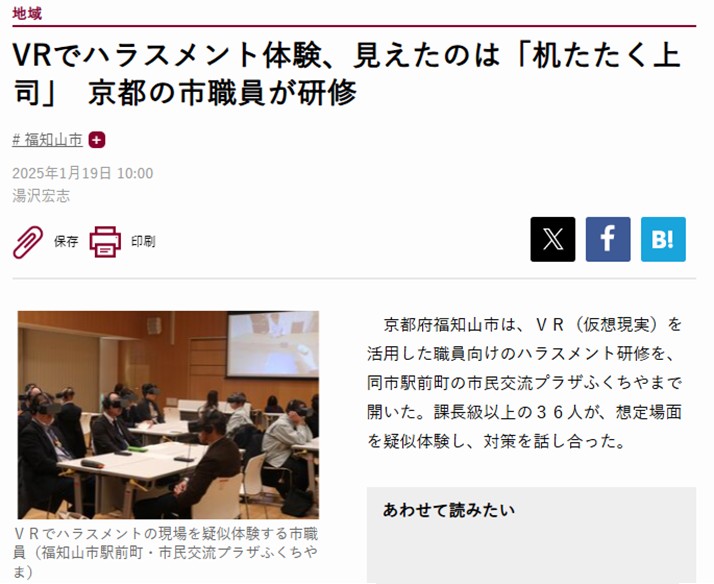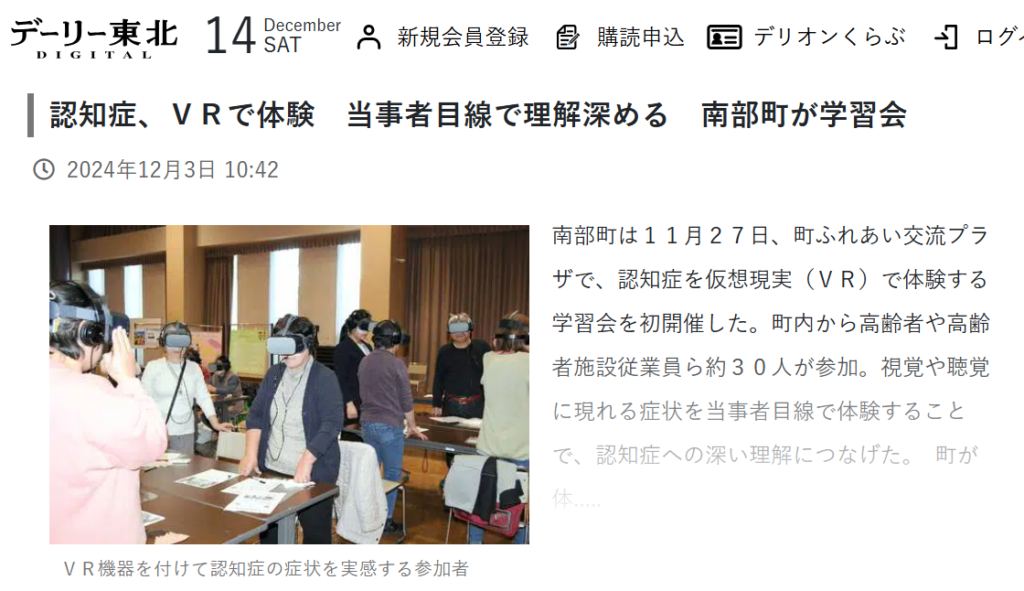2019.06.03
VR Dementia (Experiencing the symptoms of Dementia by VR) - SILVER WOOD Co., Ltd.
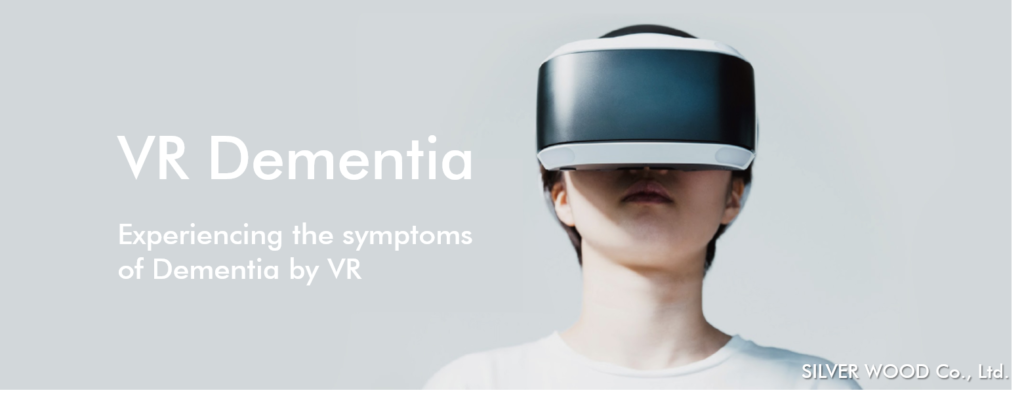
- Table of Contents
What is VR Dementia?
VR Dementia allows people to experience the symptoms of dementia from a first-person perspective. VR Dementia aims to deepen people’s understanding of dementia by “experiencing” dementia, rather than “learning” about it. By experiencing dementia, you can think about dementia as your own affair, not as someone else’s.
VR experience is different from just watching videos. Because your entire field of vision is covered with a headset, VR can make you feel present in the scene.
Many people say that using VR allows them to understand about dementia in totally different way from the lectures they have had in the past. And that the VR experience was a good opportunity for them to realize their own prejudice against dementia.
Usually, we offer 90 minutes sessions using these VR. In the 90 minutes, participants experience 3 VR contents and watch 2 interview videos of persons with dementia.
After each VR experience, participants would share their thoughts with each other on “How they felt” and “How they would want to be treated in that situation”. Then participants would discuss how the environment surrounding the people with dementia can be changed to improve the situation.
We hold VR Dementia sessions to various people, such as medical professionals, care workers, government officials, students, people who have a family member with dementia, and anyone who is interested in learning about dementia. Since 2017, we have succeeded in getting over 120,000 people to experience the VR dementia (as of November 2023).
(Overseas Expansion)
VR Dementia have been translated into English, Chinese, and Taiwanese.
Our partner in Taiwan used our VR to offer VR Dementia sessions in Taiwan.
(Achievement)
"Best Smart Care Technology Service Winner" at 5th Asia Pacific eldercare innovation awards 2017
2022 Healthy Aging Prize for Asian Innovation Technology & Innovation Second Prize
(Reference)
・CNA TV program "Money Mind" *Silver Wood is introduced from 15:37. https://www.channelnewsasia.com/watch/money-mind-2022-2023/milestone-meeting-3023961
・Financial Times article https://www.ft.com/content/163bc678-01ed-11e8-9e12-af73e8db3c71
・the Japan Times article https://www.japantimes.co.jp/multimedia/2017/11/30/news/video-vr-video-experience-dementia/
About SILVER WOOD Co., Ltd.
SILVER WOOD operate housings for elderly people with supportive services named ”Ginmokusei” in Japan. In each of 12 Ginmokusei, about 50 people live there. About 90% of the residents are people with dementia.
The policy of Ginmokusei is simple. "Do everything you can do yourself. Do what you want to do." This concept is the same whether a resident has dementia or not.
(Achievement of Ginmokusei)
"Facility of the Year Residential Aged Care" at 3rd Asia Pacific Eldercare Innovation Awards 2015
Through our daily contact with many residents with dementia, we felt that we can change the society’s understanding of dementia. And to do that, we have come to think that it is not a matter of changing the people with dementia, but of changing those of us who surrounds them. That is why we developed VR Dementia.
Participant's voice
Here are some of the many comments from the participants.
"I thought I understood everything about dementia, but I may have been arrogant. May be I was just looking at the 'symptoms' of dementia and not the 'person'." - Dementia Specialist Doctor
"I have always wanted to understand the feelings of people with dementia and be close to them, but I had been struggling to do so. But through this VR experience, I felt like I finally understood what I should do from now on, and tears came to my eyes." - Care worker
"I was surprised by the power of the VR experience, which was completely different from the lectures I had taken." - Dementia Specialist Nurse
"I used to have a 'big negative' impression of dementia, but through the experience, the negative impression disappeared." - College student
"I learned more than reading 100 technical books." - Medical student
"If I could have experienced this VR 10 years ago, I might have changed the way I cared for my mother. I want people who are caring for their family members to experience this VR." - Care giving family
"I am currently taking care of my father who has Lewy body dementia, but I think I can be a little kinder to him from today." - Care giving family
"I knew about this VR from TV and word of mouth, but seeing is believing. I was surprised by the experience. The VR technology was amazing." - Medical worker
VR Contents
There are 3 VR contents translated to English, Chinese, and Taiwanese.
One is titled "What are you doing to me?"
-The story proceeds from the viewpoint of a person with dementia -
You are standing at the edge of the roof of the building. Some care workers then say, “Don’t be afraid, just step down“. But you are scared and cannot move. For a moment, you feel like you are falling down from the top of the building, but you soon realize that you were really just stepping down from a car.
This is an experience of visuospatial deficit, a symptom that makes it difficult to percept distance. So just a step of the car felt like the height of a building.
Imagine how you would react if these care workers pulled your hands or pushed your back to help (or make) you step off the car ...
Through this VR experience, participants realize that there are reasons for the behavior of people with dementia, which participants may have previously thought was incomprehensible. Also, many of the issues regarding people with dementia are actually not the problems of the people with dementia, but rather the problem of people who surrounds them. The problem is the lack of understanding and the way of communication with people with dementia.
Another one is "Dementia with Lewy bodies - Visual Hallucination -"
And another is "Where am I?"
VR Contents
We are expanding VR programs to variety of topics such as LGBT, developmental disabilities, visual impairment, cancer, and more.
Contact
If you have any questions regarding our VR dementia, please e-mail us.
VR@silverwood.co.jp
